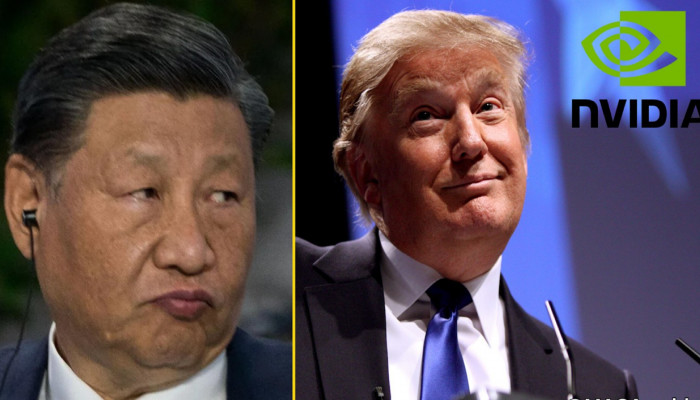US blocks Nvidia's H20 chip sale to China, shares plunge 6%
- In Reports
- 02:21 PM, Apr 16, 2025
- Myind Staff
Nvidia’s shares dropped sharply by around 6% after the company said it would take a $5.5 billion loss because of new U.S. government rules. These rules limit the export of its H20 AI chips to China. The H20 is Nvidia’s most powerful AI chip currently sold in China and had become very important for the country’s fast-growing AI industry.
On April 9, the US government under Donald Trump officially told Nvidia that it would need a special license to export its H20 chip to China and some other countries, due to national security concerns. Five days later, officials confirmed that these export restrictions would stay in place permanently, as mentioned in Nvidia’s regulatory filing. It’s still not clear if any of those export licenses will actually be approved. The H20 chip was created to deliver high performance while still staying within the limits set by US export rules, which were first introduced under the Biden administration and made stricter in 2023.
Major Chinese tech companies like Tencent, Alibaba, and ByteDance have reportedly been increasing their purchases of the H20 chip to keep up with the growing demand for affordable AI models. Although Nvidia’s US chips train AI models faster, the H20 chip performs better during inference—the stage where AI gives real-time answers to users. According to Nvidia CEO Jensen Huang, this part of AI processing is expected to become the most important in the AI chip market. Even with its limitations, US officials pointed out that the H20’s fast connectivity could still be useful for supercomputing in China. Since 2022, Washington has banned the sale of AI chips for Chinese supercomputers.
A think tank based in Washington, called the Institute for Progress, has raised concerns that companies like Tencent might already be using H20 chips in locations that go against existing restrictions. Following this news, Nvidia’s stock dropped after trading hours. Shares of AMD also fell by 7%, and Broadcom’s shares declined by nearly 4%, as investors reacted to the rising tensions between the US and China over technology.







Comments